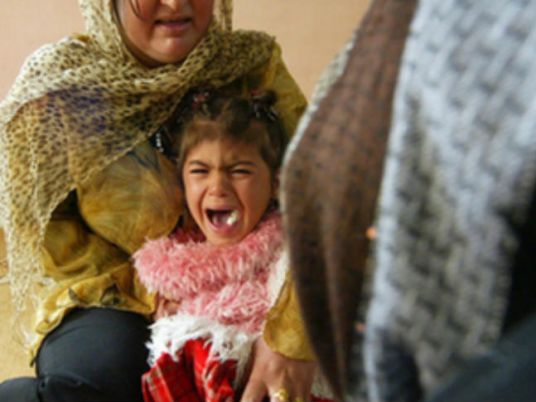Female circumcision is part of the prophetic Sunnah, said MP Nasser al-Shaker of the Salafi-led Nour Party, who previously proposed a bill that would allow the practice.
On a morning show on Mehwar satellite TV station, Shaker said notable Egyptian scholars have said the practice is part of the Sunnah.
Imam Mohamed Sayed Tantawi, Abdel Halim Mahmoud, former Islamic Research Academy member Sheikh Attiya Saqr and former Egyptian Mufti Nasr Farid Wasel — all prominent Egyptian religious figures, the first three of whom have died — had all authorized the practice, also known as female genital mutilation, Shaker said.
Shaker said former first lady Suzanne Mubarak was the driving force behind banning it.
Randa Fakhr Eddin of the Cairo Coalition Against Female Genital Mutilation replied to Shaker’s statements, saying there is no consensus on the law by senior scholars or Islamists, and that Sayed Tantawi rejected the law in the 1990s, saying it was considered a cultural habit rather than a religious practice.
The issue surfaced after some people accused the Muslim Brotherhood’s Freedom and Justice Party of launching a charity medical campaign last month in Minya, during which they had performed the practice on some girls.
FJP has denied the reports, and Hussein Ibrahim, head of the party’s parliamentary bloc, told the People’s Assembly Sunday that the party didn’t sponsor any such campaigns.
Female genital mutilation is widely practiced in Egypt and Sudan, along with some other African countries. Most Arab and Islamic countries view it as a crime, but some people believe it was approved by the Prophet Mohamed.
Al-Azhar Supreme Council of Islamic Research, the highest religious authority in Egypt, has condemned the practice, calling it harmful and saying it’s not based in Islamic law. Dar al-Ifta, the authority for issuing legal opinions, also condemned it.
The prevalence of the practice among women aged 15 to 49, who are or have ever been married, is 91 percent, according to the 2008 Egypt Demographic and Health Survey.
Rights activists say it is mainly performed by medical staff, such as doctors — unlike most countries where the practice occurs. Egypt officially banned female genital mutilation in 2007.




